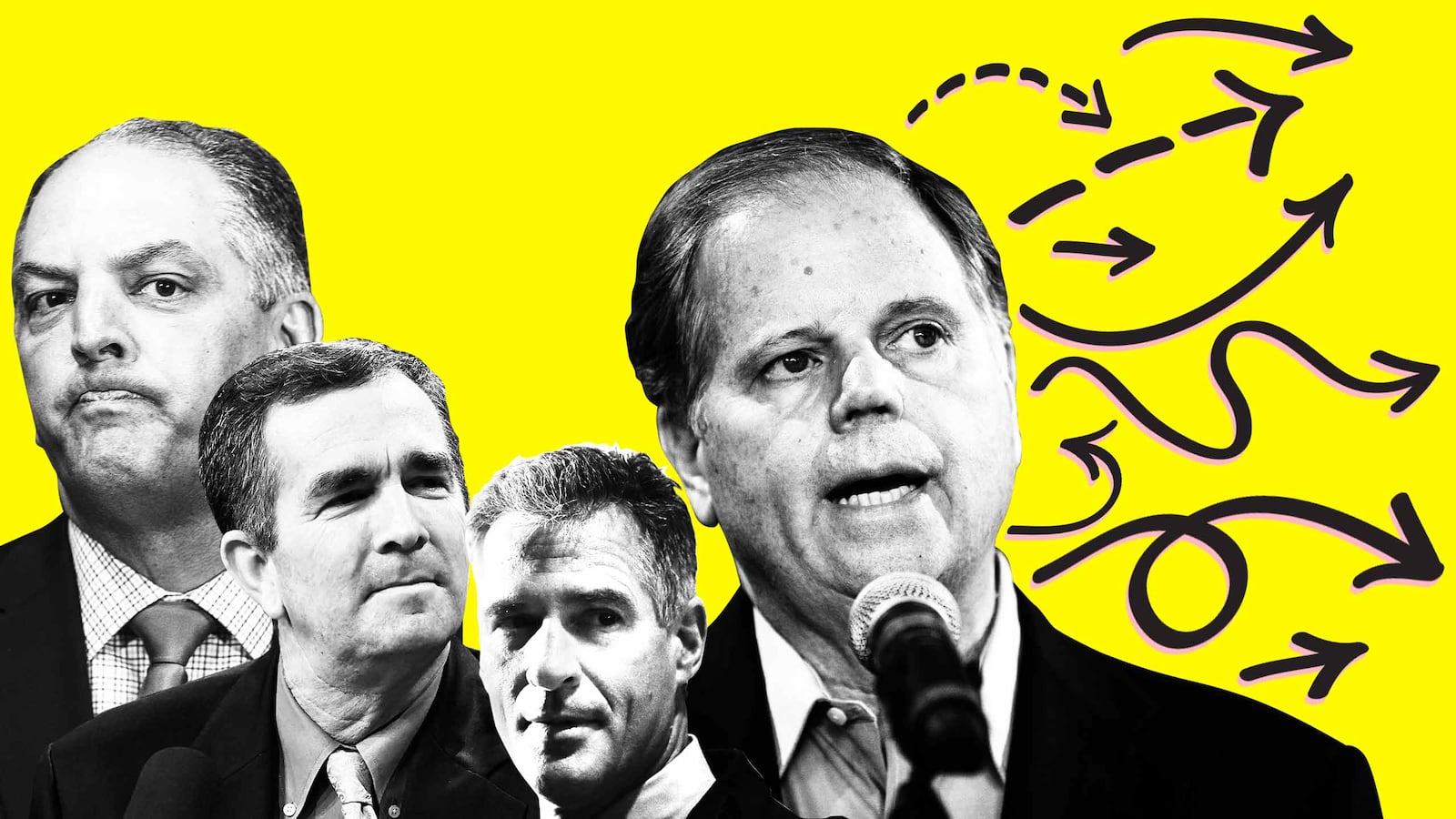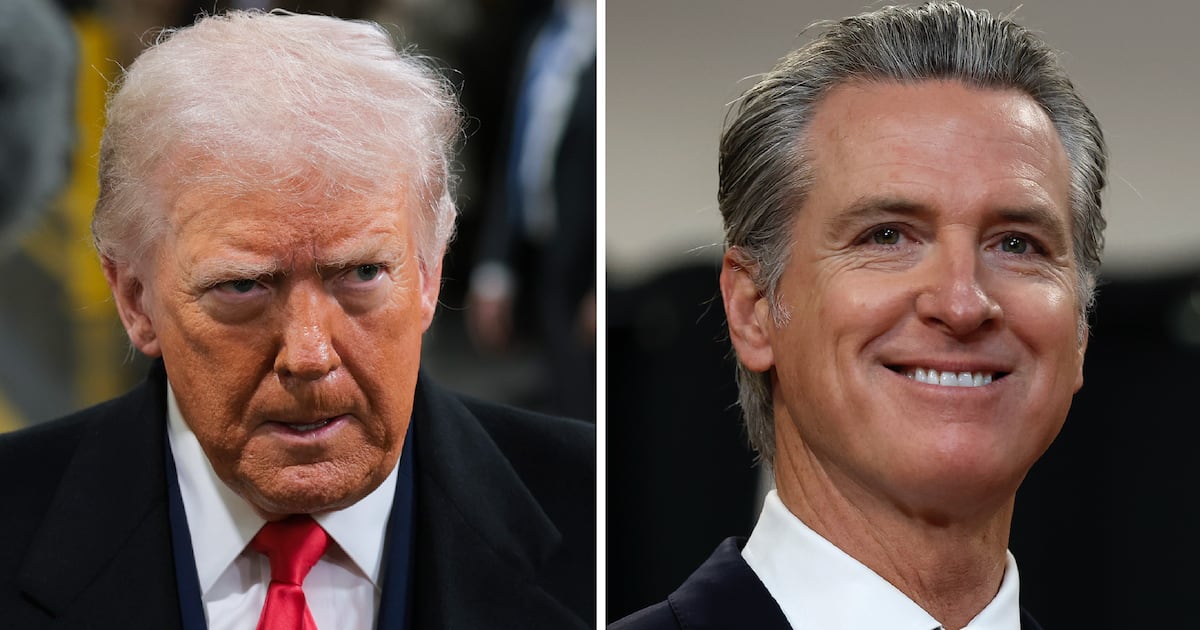My ears perked up recently, when Virginia’s governor-elect Ralph Northam had the audacity to say “Virginians deserve civility” and that we’re “looking for a moral compass right now.” Northam also pledged not to try to flip control of the State Senate to Democrats by offering jobs to entice Republican senators to retire. This seemed like an utterly decent, if surprising, thing for a newly-elected governor to say.
Not everyone was happy. Having scored back-to-back victories in Virginia and Alabama, Democrats are starting to realize the campaign doesn’t end on Election Day. Public policy success depends on the maintenance of a permanent apparatus aimed at enforcing party loyalty and ideological purity—and discouraging talk about bipartisanship. Based on developments this week in Virginia and Alabama, this could be a full-time job.
Talk of civility is bad news for partisans, but it was Northam’s comments about Medicare that really drew the ire of progressives. Because the federal government will ultimately contribute less and less money (and Virginia will have to contribute more and more) to the program, Northam said he wants to see “’how we can provide better service and at the same time cut costs” through “managed-care Medicaid.’”
In other words, he wants to couple expanded coverage with reforms to prevent costs from spiraling out of control. Sounds reasonable, right? Wrong.
Everyone from Northam’s primary opponent to former Obama speechwriter Jon Favreau weighed in—the latter warning about “wrath” Northam might receive “from Democrats everywhere” if he doesn’t “clarify” his position.
Progressive activist Oliver Willis tweeted, “Boo for this Northam. Quit taking the high road,” and later direct messaged an editor at Blue Virginia, writing: “[Northam]’s making the same mistake Obama did. The lesson of the last 8 years is to be ruthless at the state level not bipartisan…” And The Daily Beast’s Sam Stein took to twitter, warning that “Northam’s gonna end up screwing over other Democratic candidates who now will have a portion of voters believing that their party promises big and then, immediately, under delivers.”
The irony here is that, political observers have long lamented the loss of moderates in American politics. You’ve heard the legends. There used to be Southern Democrats and Northeastern Republicans, we are reminded. And, according to lore, you could work with these folks on bipartisan compromise. Those were the salad days.
But moderates, it turns out, are sort of like a Christmas fruitcake. We all have theoretical nostalgia for them, but they leave a nasty aftertaste; nobody really wants them at their table.
And how can you blame Democrats? Liberals who watched Republicans refuse to seat Merrick Garland on the Supreme Court, and then watched as they elected Donald Trump (Donald Trump!), understandably have little appetite for civility or compromise—even though that might arguably simultaneously be the patriotic, prudent, and even politically sagacious thing to do.
But! One could argue that Virginia is now a deep-blue state. There’s no compelling reason for a Virginia Democrat in 2018 to moderate. Putting aside happy talk about civility and comity, there’s no strategic need to play nice here. Even assuming one buys that argument, we are left with a big discussion about the Senator-elect from Alabama, Doug Jones—who faces a similar conundrum. It’s unclear whether progressives will give him more latitude than Northam.
At least one liberal thinks he would be wise for Senator-elect Jones to move to pursue a bipartisan agenda. As Bill Scher writes in Politico Magazine, “The challenge for Doug Jones is to be another John Bel Edwards [the conservative Democrat who serves as governor of Louisiana], not another Scott Brown [the Massachusetts senator defeated by Elizabeth Warren].”
“If Brown wanted a long career in the upper chamber,” Scher continues, “he would have been the 60th vote, not the 41st. He would have signaled to the Democrats that he was prepared to cooperate on several of Obama’s priorities, if they were prepared to let him put his stamp on legislation.”
Indeed, it seems this is Jones’s inclination. Appearing on CNN’s State of the Union on Sunday, Jones—who ran a much more progressive campaign than many of us thought wise—said he would consider voting with Republicans on occasion, and that he didn’t think President Trump should resign over sexual assault allegations.
“One of the problems in American politics right now, in my opinion, is that everybody thinks because you’re a member of one party or another, you’re going to vote a certain way,” Jones said (sounding a bit like Northam). “And that should not be the case, should never be the case. I’m going to talk to people on both sides of the aisle, try to figure out what I think is in the best interest of my state and the country.”
There is a price to success, and one of the costs is figuring out how to govern. President Trump has decided to focus on building an energetic base over persuasion. This model may not be healthy for American politics, but it can sometimes work. The verdict is still out for Trump, who will presumably face the voters again in 2020. The more immediate question now, for Democrats who at the moment look to be ascendant, is this: Do they want to win over new converts, or do they want to rule as conquerors?
These choices are not exactly mutually exclusive, but it’s hard to please everybody. Nobody said this would be easy. Ralph Northam and Doug Jones are going to have disappoint somebody.






